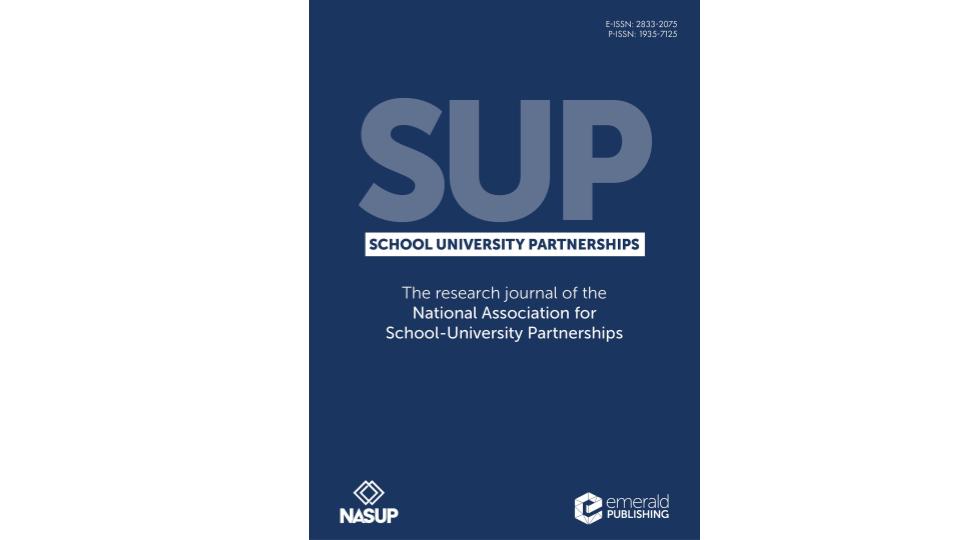Collective Impact Initiatives in School-University-Community Partnerships
Guest Editors
Kimberly Wilson, Wichita State University
Overview
The primary aim of this special themed issue on collective impact initiatives is to explore and disseminate best practices, innovative approaches, and research findings that advance the understanding and implementation of collective impact in school-university partnerships (SUPs). This issue seeks to highlight the role of collaboration among diverse stakeholders in addressing complex challenges in education. By showcasing successful case studies, evidence-based strategies, and reflective practices, the journal aims to provide valuable insights and practical guidance for educators, administrators, policymakers, and community organizations. Ultimately, this issue aspires to inspire and inform collective efforts to improve student outcomes through enhanced community involvement and stakeholder collaboration.
Unlike traditional isolated interventions, collective impact initiatives bring together diverse stakeholders to collaboratively address complex educational challenges. This issue will provide fresh insights into the processes and outcomes of these initiatives, showcasing innovative strategies and practical applications that have demonstrated success. This issue will highlight how SUPs can leverage collective resources, expertise, and community involvement to enhance student achievement and engagement. Additionally, it will offer new perspectives on the role of reflective practice and inquiry in sustaining and scaling collective impact efforts. This comprehensive examination will serve as a valuable resource for educators, researchers, and policymakers seeking to implement or enhance collective impact initiatives in their own contexts.
The need for this special issue is supported by a growing body of literature and recent societal trends emphasizing the importance of collaborative approaches in education. Research has shown that collective impact initiatives can significantly improve student outcomes, teacher development, and community involvement. Events such as the COVID-19 pandemic have underscored the necessity for cross-sector collaboration to address educational disparities and
resource gaps. Furthermore, the increasing diversity in schools and the complex challenges they face necessitate innovative and integrated approaches. This issue will build on existing research by providing current examples and best practices, thus offering practical guidance for implementing collective impact strategies. The societal implications of enhanced collaboration in education include more equitable access to resources, improved student success, and stronger community ties, making this a timely and relevant focus for the field.
Proposed topics for this special issue could include, but are not limited to, the following:
- Role of Collective Impact in Education: Exploration of how collective impact initiatives can address educational challenges through collaborative efforts involving schools, universities, community organizations, and policymakers.
- Improving Student Outcomes: Case studies and research on the effectiveness of collective impact initiatives in enhancing student achievement, engagement, and overall success.
- Reflective Practice and Inquiry: Analysis of how reflective practices and continuous inquiry can support and sustain collective impact initiatives, leading to more effective and adaptive strategies
- Evidence-Based Decision Making: Strategies for building and utilizing evidence to inform resource allocation, program design, and policy decisions within collective impact frameworks.
- Integrating Community Voice: Best practices for incorporating community input and agency into school-university partnerships, ensuring that initiatives are responsive to local needs and contexts.
Publication of the Themed Issue
This themed issue will be published in the first quarter of 2025.
For full consideration, articles must be submitted to the Guest Editor by November 1, 2024.
Tentative Schedule for Publication
- Submission Dates: July 1, 2024 – November 1, 2024
- Authors will be notified of publication decisions and receive feedback through a double-blind peer review process: December 6, 2024
- Final article revisions submitted: January 6, 2025
Submission Guidelines
Articles should be a maximum of 10,000 words in length. This includes all text, the structured abstract, references, tables, figures and appendices. Article files should be provided in Microsoft Word format and follow APA 7 guidelines. More details can be found on the SUP website under the author guidelines tab. Submissions must be blinded, including a blinded title page and structured abstract, Each submission will undergo double blind peer review. Target number of accepted papers is 8-10 manuscripts.
Proposal Submission
Please submit themed issue articles via the online system found at
Emerald Publishing. You may address questions to Kim.wilson@wichita.edu.
